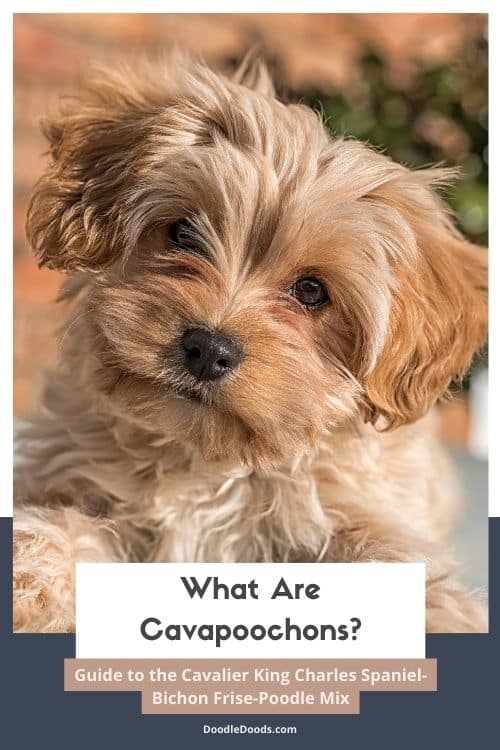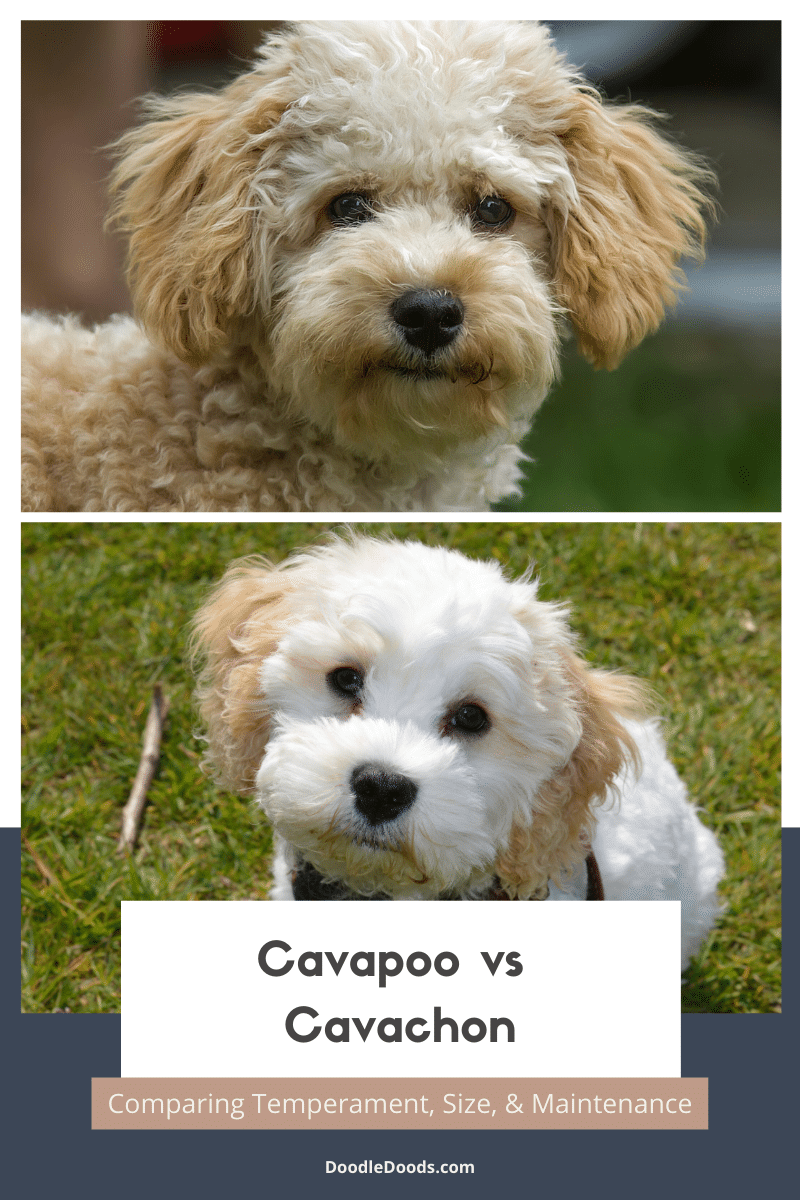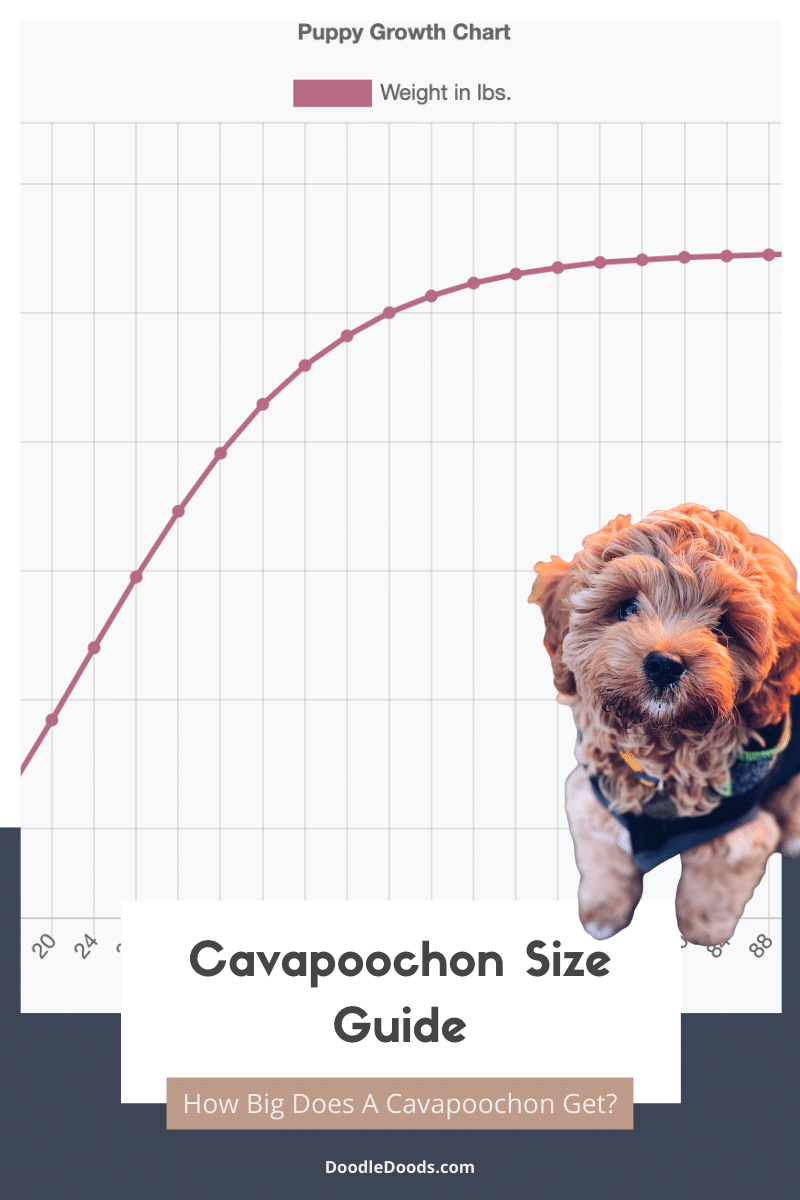If you’re looking for an adorable and affectionate companion, the Cavapoochon might just be the perfect pup for you. A mix of the Cavalier King Charles Spaniel, Bichon Frise and Poodle, this hybrid breed is gaining popularity all across the globe. In this article, we’ll cover everything you need to know about the Cavapoochon, from their appearance and temperament to grooming tips and more.
Table of Contents
- What Is A Cavapoochon?
- Physical Appearance
- Cavapoochon Pictures (Puppy & Adult)
- Cavapoochon Size
- Cavapoochon Variations & Generations
- Cavapoochon Personality & Temperament
- Cavapoochon Health & Life Expectancy
- Exercise & Training
- Cavapoochon Coat & Grooming
- Where Can You Get Cavapoochon Puppies?
- Frequently Asked Questions
- Final Thoughts
What Is A Cavapoochon?
Cavapoochons are a delightful hybrid breed, combining the traits of their three parental breeds: Cavalier King Charles Spaniel, Bichon Frise, and Poodle. Needless to say, Cavapoochons combine the best traits from all three of their parental breeds, making them truly wonderful pets.
You may ask – what’s the difference between a Cavapoochon and a Cavapoo? Or a Cavapoochon and a Cavachon? And what’s the deal with Poochons? First, Cavapoos are a cross between the Cavalier King Charles Spaniel and a Poodle. On the other hand, Cavachons are a cross between the Cavalier and the Bichon Frise. Lastly, Poochons are a hybrid cross between the Bichon Frise and Poodle. So, that should clear things up a bit!
Since the Cavapoochon isn’t as well-known or established as some other Poodle mixes, there are various ways a breeder could achieve a litter of Cavapoochons. They may cross a Cavachon back to a Poodle, or instead create a litter by crossing a Cavapoo with a Poochon. Generally, their genetic makeup would be roughly 25% Cavalier King Charles Spaniel, 25% Bichon Frise, and 50% Poodle, resulting in a low-shedding and allergy-friendly Dood.
Since all three of these parental breeds are small-sized dogs, the Cavapoochon has a small stature that makes them excellent pets for people living in smaller homes. The Poodle used in the mix is most often Toy Poodle, but some breeders also opt to use Miniature Poodles that are just slightly larger.
Overall, Cavapoochons are charming animals that combine many amazing traits from their three parental breeds. If you’re looking for a pup with plenty of personality and affection, then a Cavapoochon might just be perfect for you!
Physical Appearance
Color
The Cavapoochon is known for its variety of coat colors, which can depend on the genetics and parents used in the mix. These colors can include red, apricot, cream, black and tan, black and white, black, tan and white, sable, white and apricot, or white and red. It’s important to note that due to their hybrid nature, the color combinations can be quite unpredictable. It all depends on the genetics that the offspring inherit. What’s more, Cavapoochons may change their coat colors as they start nearing adulthood. If you’re after a particular coat color, you can always ask the breeder for more information on this.
Coat, Shedding, & Hypoallergenic Level
Cavapoochons are notorious for their beautiful coats that are luxuriously soft to the touch. Some Cavapoochons might have a single-layer coat while others might have double-coated fur in various colors and patterns. This means that each Cavapoochon is unique in terms of its appearance!
Generally, Cavapoochons come with either wavy or curly coats, depending on their genetics and how they were bred. More often than not, these pups are single-coated, meaning that they won’t shed much hair. However, some pups may inherit a shedding undercoat, as both the Cavalier and Bichon Frise are double-coated breeds.
Depending on the genetics of the individual pup, Cavapoochons can be hypoallergenic – if there is more Poodle in their makeup, they will likely have a single coat and be hypoallergenic. This makes them excellent pets for people who suffer from allergies. Or, if you just aren’t a fan of having to remove loose dog hair from your clothes and furniture.
Overall, Cavapoochons are known for their gorgeous coats that are low-shedding and allergy-friendly. However, they also require plenty of grooming, which we’ll discuss later on in this guide. As long as they receive proper care and grooming, these pups will remain healthy with their stunning coats in excellent condition.
Cavapoochon Pictures (Puppy & Adult)
Are you ready to see what all the fuss is about? Here are some examples of the amazing, adorable Cavapoochon pups:
| Photo Link | |
| Apricot Cavapoochon | @being_bertie_beau |
| White and Tan Cavapoochon | @cavapoochon_ollie |
| Brown Cavapoochon | @nancythecavapoochon |
Cavapoochon Size
We already know that Cavapoochons are small dogs, just like all three of their parental breeds. But, how big will a Cavapoochon get exactly? For this, we first must understand a bit more about their heritage.
Cavalier King Charles Spaniels usually stand about 12 to 13 inches tall at the shoulders, with an average weight of 13 to 18 pounds. Meanwhile, the Bichon Frise falls into a similar size category, as they tend to grow up to 9.5 to 11.5 inches tall, and weigh about 12 to 18 pounds as an adult.
Then we have Poodles that come in three different sizes – Standard, Miniature, and Toy. Toy or Miniature poodles are usually used in the Cavapoochon mix, as both Cavalier King Charles Spaniels and Bichon Frise are small breeds. Toy Poodles can weigh anywhere from 4 to 12 pounds and stand up to 10 inches tall, whereas Miniature Poodles are slightly larger with their 10 to 20 pound weight, and a height between 10 to 15 inches at the shoulder.
By those estimates, Cavapoochons typically range in size from 9 to 14 inches and 12 to 20 pounds. The size of a Cavapoochon can depend on the size of the parents and which type of Poodle is used in the mix. Moreover, the hybrid nature of Cavapoochons means that their size is not guaranteed to be consistent across individuals, but it does generally remain within the previously stated parameters.
Additionally, due to its small stature, this breed is popular among people living in apartments or with limited space, as its needs can be easily met with even modest living arrangements. Overall, the Cavapoochon is known for its adaptability when it comes to its size, making them a suitable choice for many people’s lifestyles.
Cavapoochon Variations & Generations
When it comes to Poodle mixes and other hybrid breeds, their generation can offer a wealth of insight into a puppy’s family tree. A Cavapoochon’s generation can even provide an indication of their potential characteristics.
However, as the Cavapoochon is a triple hybrid cross, the typical generations don’t exactly apply here. Here’s an example: a first-generation Cavapoo is the result of a cross between a purebred Cavalier King Charles Spaniel and a Poodle, which roughly results in an equal ratio of each breed’s genetics.
On the other hand, F1b generations are created by crossing an F1 Cavapoo back to a Poodle, resulting in roughly 75% Poodle genes and 25% Cavalier King Charles Spaniel.
It is worth noting that the Cavapoochon is already considered as a second-generation hybrid breed due to its unique genetic composition – this breed is created through crossing the Cavalier King Charles Spaniel with the Bichon Frise before then adding the Poodle into the mix. Therefore, it brings together three different breeds in one pup, making it far more complex than other Doodle generations that typically involve only two breeds.
| 1st Parent | 2nd Parent | % Cavalier King Charles Spaniel* | %Bichon Frise* | % Poodle* | |
| F2 Cavapoochon (second-generation) | F1 Cavachon | Poodle | 25% | 25% | 50% |
| F2B Cavapoochon (second-generation backcross) | F2 Cavapoochon | Poodle | 12.5% | 12.5% | 75% |
| F3 / Multigen Cavapoochon | F2 Cavapoochon or higher | F2 Cavapoochon or higher | Varies | Varies | Varies |
*These are generic calculations only – genetics are rarely mathematically accurate.
Cavapoochon Personality & Temperament
A crucial element to consider before adopting any dog is their personality and temperament. After all, you want to make sure that your new furry family member meshes well with your personality, lifestyle, and family dynamics.
The good news is that Cavapoochons tend to make excellent pets for almost any household. Cavapoochons are known for being affectionate and sweet-natured. They’re also very playful and outgoing, making them great companions for both singles and families alike. At the same time, Cavapoochons have a gentle nature and are quite intelligent, which makes training relatively easy using positive reinforcement methods. They may be a bit vocal at times, but with proper socialization and training they can learn to channel that energy in more appropriate ways.
Cavapoochons are also known to get along well with children, making them great family pets. However, as they are such small dogs, it’s vital that you keep a close eye on your kids and pup whenever they play together, and teach your children the appropriate ways to handle a small dog to prevent any unfortunate accidents and injuries.
All in all, Cavapoochons are truly endearing little pups that combine all of the best traits from their parental breeds. Of course, for them to grow into well-behaved and well-rounded adults, you have to provide them plenty of opportunities for mental stimulation and socialization, which we’ll discuss a bit later in this guide.
Cavapoochon Health & Life Expectancy
Like other hybrid breeds, Cavapoochons are considered healthier than their purebred parents. That’s because they benefit from something called hybrid vigor, which indicates that crossbreeds inherit superior qualities from their parental breeds. Due to this, they tend to be healthier and live longer than their purebred parents.
So, how long do Cavapoochons live? These pups have an average lifespan of 13 to 16 years. However, like with any breed, there are a few health concerns that owners should keep an eye out for. The most prevalent ones include ear infections, eye diseases, heart problems, seizures, and joint problems like elbow dysplasia and patellar luxation.
Cavapoochons may also have more sensitive skin and stomachs, which can sometimes result in allergies or and intolerances. For this reason, it’s important to keep a close watch on any changes in their environment and diet, and monitor them closely if their behavior or overall health changes.
All in all, as long as they’re given the proper care and attention they need, Cavapoochons can live very long and healthy lives. Don’t forget the importance of a healthy and balanced diet, a good exercise regimen, and plenty of kisses and cuddles to keep stress levels at a minimum.
Exercise & Training
Cavapoochons are generally active dogs, but they don’t require intense exercise as compared to some other larger Doodle breeds. They need regular daily walks and playtime, to keep them physically and mentally healthy – about 30 to 60 minutes of walkies and playtime a day should be enough.
Thanks to their Poodle heritage, these pups are also quite intelligent, which means that both physical and mental stimulation are essential to keep them healthy, happy, and well-behaved. In fact, if your pup doesn’t get enough enrichment, they may start to exhibit unwanted behaviors. For this reason, early socialization, obedience training, potty training, and crate training are vital. The sooner you start, the better!
If you need some help along the way, we recommend you check out the Online Puppy School created by Baxter & Bella. This online puppy training subscription is an excellent choice if you prefer to train your pup yourself from the comfort of your own home. We’ve tried it, tested it, and absolutely love it.
Cavapoochon Coat & Grooming
Another key thing to consider before getting a Cavapoochon is their grooming routine. Some people consider Cavapoochons high-maintenance, and we can certainly understand why.
Their coats do require regular grooming to keep them tangle-free and healthy. As they are prone to matting, it’s important to brush the coat regularly. You should brush your Cavapoochon at least 3 to 4 times a week, but ideally daily. This will help prevent matting, skin problems, and even reduce shedding. Not to mention, it’ll keep your pup looking fabulous at all times.
Besides brushing, the Cavapoochon’s ears need periodic cleaning, and the nails should be clipped as needed. You’ll also need to have your Cavapoochon’s hair trimmed every 4 to 8 weeks, either by a professional groomer, or by yourself at home with the proper grooming tools. We also recommend you establish a good oral hygiene routine to prevent any dental diseases.
Where Can You Get Cavapoochon Puppies?
So, if you’ve made it to the end of this guide and are certain that the Cavapoochon is the one for you, it’s time to get into the details. First of all, you might be wondering, how much does a Cavapoochon cost? In the US, the price varies between $1,500 and $4,000, depending on your location, but also the breeder’s experience and reputation.
Although the price may seem high at first, you must understand that reputable breeders charge more as they follow responsible breeding practices. They extensively health and DNA test their breeding dogs, provide their dogs and puppies a safe and nurturing environment, a healthy diet, and proper veterinary care. Needless to say, all of this also reflects in the price you pay.
Understandably, finding an ethical breeder is a time-consuming and difficult task. We’ve been there! That’s why we decided to create our Doodle Breeder Directory, where you’ll be able to find ethical Cavapoochon breeders in the US, Canada, UK, Australia, Germany, and Netherlands.
Frequently Asked Questions
Yes, Cavapoochons make great pets! They’re loving, gentle, and sweet-natured, making wonderful companions for many households. They’re also highly intelligent, making training a breeze with these pups. Nonetheless, it’s your responsibility to properly train and socialize your dog for them to grow into well-behaved adults.
Indeed, Cavapoochons are known to be a bit vocal at times. However, with proper training and socialization, their barking can generally be managed and kept to a minimum. Fortunately, even if they do bark, they generally aren’t as loud as some other breeds.
A Cavapoochon is best for a person or family looking for a loyal, friendly, and loving pet. They are very affectionate, intelligent, easy to train, and make great companions for both adults and children. They are also low-shedding which makes them ideal for people who suffer from allergies. Cavapoochons are small in size, and require less space than larger breeds. This makes them well suited for people who live in apartments or other small living spaces. Furthermore, they don’t need insane amounts of activity and exercise, so they are not likely to disturb your neighbors by barking or running around all the time.
Final Thoughts
All in all, the Cavapoochon is an ideal pet for anyone looking for a loyal and loving companion. They inherit the best qualities from the Cavalier, Bichon Frise, and Poodle parents. And thanks to their small size, they can comfortably thrive in both smaller apartments and spacious houses. With proper training and plenty of love, a Cavapoochon will surely prove to be a wonderful addition to your family.
Learn How to Care for Your Doodle Puppy!

Perfect for first-time Doodle parents, get ALL your questions answered, including questions new Doodle parents don’t even think to ask.
Plus, get $700 worth of Bonus Materials for FREE, including:- Doodle Parenthood Community and Support Group ($190 value)
- Doodle Puppy Growth Tracker ($20 value)
- EMERGENCY Cheatsheet: When To Call The Vet Immediately ($50 value)
- HELP! Button ($145 value)
- And SO MUCH MORE!



